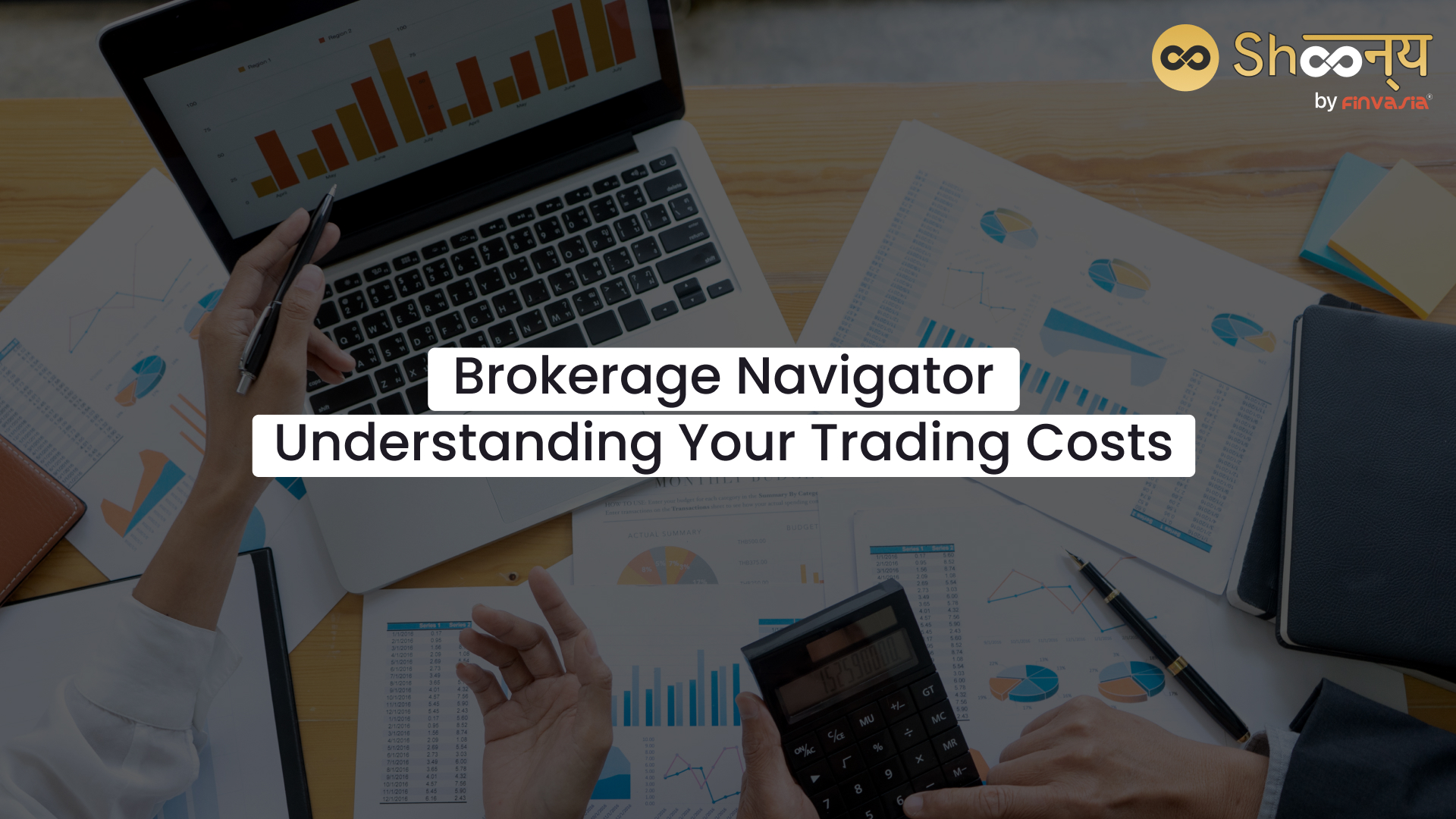The stock investment landscape in India has changed tremendously in recent times. Digitisation has made financial instruments more accessible. Modern tech-savvy individuals find it easier to navigate share trading and investment apps like Groww. While these apps simplify access, the technical jargon remains a hurdle for average investors.
You must pay a fee to execute a trade using online stock brokers. However, not many investors know how much they should pay. The online brokerage charges calculator is a simple tool that gives you this information, letting you know the trading cost.
In this blog, we will break down trading costs to empower you to make smart investment
decisions.
Online Stock Brokers and Trading Costs in India
As a trader or investor, you must buy and sell stocks from one of the stock exchanges. However, individual traders cannot trade directly on these exchanges. You need a broker who will serve as an intermediary to facilitate this trade.
Traditionally, stock brokers contact their clients and inform them of profitable trades. They execute the
trades and pocket their commissions.
Online stock brokers like Groww now open many opportunities for traders and investors. You can explore hundreds of stock options, make your own decisions, and trade whenever you want (as long as the exchange is open).
You must pay brokerage charges for such brokers. Depending on the broker, you can trade stocks, futures, currency derivatives, and mutual funds using their platforms.
There are two types of brokers:
- Full-service brokers buy and sell shares on your behalf. They provide financial advice based on extensive research and give you reports. You can trust them to make sound financial decisions. Their brokerage rate varies from 0.01% to 0.50% based on total volume of shares.
- Discount brokers charge a lower brokerage fee but only execute trade transactions. They don’t offer personalised financial advice. However, these brokers offer multiple tools and resources for investors to make sound financial decisions. Generally, they charge a fixed fee for every trade.
Your trading costs hugely depend on the type of broker you use. Full-service brokers are more expensive than discount brokers, but you can get market updates, reports, and investment suggestions. Discount brokers are more suitable for investors who can take control of their finances.
The trading costs also vary based on how frequently you execute trades and how long you intend to hold the shares in your demat account.
- Intraday trading involves high-volume trading because traders buy and sell securities within the same day and don’t hold the stocks overnight. Such traders aim to capitalise on short-term price fluctuations. It involves a high volume of trades, and a brokerage fee is usually incurred as a percentage of every buy and sell order.
- Delivery trading involves buying stocks for investing, as investors hold stocks for extended periods in weeks, months, or even years. The underlying shares are deposited and held in your demat account until you wish to sell them. Here also, a fee is incurred for every buy and sell order.
Components of Trading costs
The share brokerage calculator helps you get an accurate cost estimate of the trade you wish to execute. It considers the type of trade, volume, transaction type, fees, and charges to calculate the total trading cost. Different brokers charge differently, and learning to use this calculator effectively will help you make smart investment choices.
The components of trading costs are:
- Brokerage Fee – Stock brokers charge a brokerage fee for every buy and sell transaction to execute your trade. This may be a percentage of transaction value or a flat fee.
- Securities Transaction Tax STT – It is a mandatory charge levied as a percentage of trade value. The STT rate is 0.1% for delivery-based equity share transactions.
- Stamp Duty – The state government charges stamp duty for every stock market transaction to transfer ownership of securities from one party to another.
- GST – Central and state governments charge 18% GST (9% CGST + 9% SGST) on the brokerage charge for each transaction.
- Transaction Charges – The stock exchange charges transaction charges for buying and selling shares. This fee depends on the stock exchange. SEBI also charges 0.0002% of the transaction amount as a turnover fee.
- Depository Charges – The depositary participant holding your securities in your demat account also charges a fee for safekeeping your securities.
The charges mentioned above are the total trading costs you must pay while executing the trade. Your actual profits can be calculated only after subtracting the above charges from your share market returns.
You must also not forget to subtract the capital gains tax applicable for profits earned from the sale of shares. If you have held shares for less than a year, Short Term Capital Gains (STCG) applies. Long Term Capital Gains (LTCG) applies for shares sold after one year. However, remember that the brokerage calculator only calculates the trading cost, not the capital gains tax.
Factors Impacting Trading Costs
You should look for options with the lowest trading costs to maximise profits from your
investments. Multiple factors impact the trading costs:
- Transaction type – The stock brokers charge different fees for stocks, futures, commodities, ETFs, mutual funds, etc. Compare all these options for the amount you wish to invest.
- Buy/Sell price – When you invest in securities, the real-time security price is one of the significant factors that impact the trading costs.
- Transaction volume – The trading costs increase dramatically based on transaction volume. Intraday traders usually pay higher fees than delivery traders because numerous daily transactions can add up. Intraday traders may find discount brokers more cost-effective because of the lower transaction fees.
- Transaction size – If you choose a broker who charges a percentage instead of a flat fee, your transaction size will influence the trading cost. Traders who make infrequent large trades will benefit from the brokers who charge a flat fee.
- Trading account type – Often, stock brokers offer tiered commission rates for traders to enable everyone to benefit from lower costs. So, your trading account type and the plan you choose also affect your trading costs.
Conclusion
Different fees are involved while trading in the stock market. The zero brokerage calculator gives you an accurate estimate of the total costs. Brokers generate their income by charging the traders. Traders and investors can choose one of the many stock brokers for hassle-free stock trading. Compare the brokers based on their brokerage charges to minimise trading costs.
FAQs
Why do full-service brokers cost more?
Apart from executing transactions, full-service brokers also give you financial advice. They share investment research and reports that are not readily available to other traders. You pay a higher price for full-service brokers for these additional services.
Can I find a broker with zero brokerage fee?
Yes, some discount brokers offer zero brokerage fees and don’t charge commissions for executing trades. However, you must pay STT, exchange fees, GST, stamp duty, and other charges.
How can I save on brokerage fees?
To minimise trading costs and reduce brokerage fees, look for discount brokers with the lowest fees. However, ensure that your broker has a good reputation and customer support.
For breaking news and live news updates, like us on Facebook or follow us Instagram, Telegram, Google News. Subscribe to us – All news Online News Channel
Get the Latest and Breaking News, Entertainment News, Technology News, Sports News Like Cricket, Government Jobs Alert, Government Results and Health & Fitness News here.








